
Anti-counterfeiting laws and access to essential medicines in East and Southern Africa
The countries in eastern and southern Africa and the East African Community are at
various stages of enacting laws to address counterfeiting. Counterfeiting is a problem for
public health if counterfeit medicines lack the active ingredients that make them
effective, or if they are harmful. Yet...
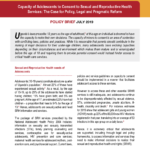
Capacity of Adolescents to Consent to Sexual and Reproductive Health Services: The Case for Policy, Legal and Pragmatic Reform
Uganda’s laws prescribe 18 years as the age of adulthood, at this age an individual is deemed to have the capacity to make their own decisions. The capacity of minors to consent is an area of contention with conflicting laws, policies and practices. While it is reasonable that parents should cont...

Clarifying the Law on Termination of Pregnancy in the Revision of the Penal Code
The case for clarifying the law on termination of pregnancy in the revision of the Penal Code(Policy Brief,July 2015)

Constitutional provisions for the right to health in east and southern Africa
The extent to which health rights are neglected or promoted is a major factor in the
promotion of health equity in Africa. Central to this is the incorporation of the right to health
in the national Constitution, as the supreme law of the country. Including the right to health
as a constitutio...

Creative Commons Luganda Translations -Six Licences
Creative Commons is a nonprofit organization founded in the United States of America to enable people to share and give permission for use of their creativity and knowledge through free legal tools.

Creative Commons Public Domain -Luganda Brief
Creative Commons (soma kuliyetivu komonizi) kitongole ekiri ku ddala ly’ensi yonna ekyobwanakyewa ekyewaayo mubumaliririvu
okutumbula okumanyisibwa okuyitira kumitimbagano gy’ebyuma
bikalimagezi okutali kusasulire, okuwagira okukozeseza, awamu
n’enkola eyokugabana ewatali bukwakkulizo amagezi ...

GAG RULE FACT SHEET
FACT SHEET

Gender Based Violence & Human right HAND BOOK
Gender Based Violence & Human right HAND BOOK

Health andHuman RIGHTS HANDBOOK
Health and Human RIGHTS HANDBOOK

HIV & AIDS and Human rights Handbook
HIV & AIDS and Human rights Handbook
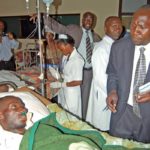
Human rights implications of load-shedding health facilities
Electricity is an essential service for personal and household use but more so for use at such public facilities as hospitals. Interrupting electricity supply through improper procedures, particularly through unannounced or unexpected load-shedding, poses a direct risk to the lives of patients wh...
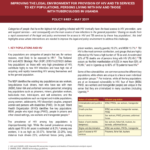
Improving the legal environment for provision of HIV and TB services to key populations, PLWHIV and those with TB in Uganda
Categories of people that have the highest risk of getting infected with HIV ironically have the least access to HIV prevention, care and support services – and consequently are the main source of new infections to the general population. Basing on results from a rapid assessment of the legal and...
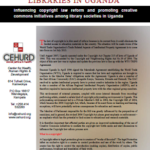
Influencing copyright law reform and promoting creative commons initiatives among library societies in Uganda
Because Uganda In April 1994 signed the Marrakesh Agreement establishing the World Trade Organisation (WTO), Uganda is required to ensure that her laws and regulations are brought to
conform to the Member States’ obligations under the Agreement.

Lawyers and Activists Handbook
Lawyers and Activists Handbook
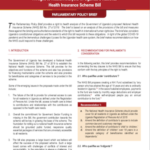
Parliamentary Policy Brief: A Right to Health Analysis of Uganda's National Health Insurance Scheme Bill
This Parliamentary Policy Brief provides a right to health analysis of the Government of Uganda’s proposed National Health Insurance Scheme (NHIS) Bill No. 27 of 2019. The brief is based on an analysis of the provisions of the bill and measures these against the binding and authoritative standard...
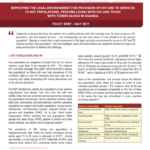
Policy Brief: Improving the legal environment for provision of HIV and TB services to key populations, persons living with HIV and those with tuberculosis in Uganda
Key populations are categories of people that are, for various reasons, most likely to be exposed to HIV. The National HIV and AIDS Strategic Plan (NSP) 2015/16-2019/20 defines ‘key populations’ as those with very high prevalence of HIV, contribute highly to new HIV infections and have high risk ...
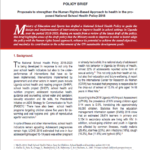
Policy Brief: Securing human rights in school health
The Ministry of Education and Sports has drafted a National School Health Policy to guide the design and implementation of interventions to improve health in school settings in Uganda over the period 2018-2023. Basing on results from a review of the latest draft of the policy, this brief highligh...
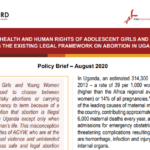
Promoting The Health And Human Rights Of Adolescent Girls And Young Women Using The Existing Legal Framework On Abortion In Uganda
An estimated 56 million induced abortions occur worldwide each year, with up to 25 million (45%) of them being unsafe. Unsafe abortion occurs when a pregnancy is terminated either by persons lacking the necessary skills or in an environment that does not conform to minimal medical standards, or b...

Protection & Access
Uganda’s Industrial Property Bill (2009) needs to be reviewed before it is enacted into law,
to make full and maximum use of the flexibilities available in the TRIPS Agreement in order
to guarantee public health, particularly access to essential medicines, for all Ugandans
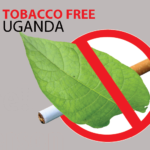
Regulation of tobacco use in Uganda
The Tobacco Control Bill 2012 has been introduced in Parliament as a private members Bill “to protect people in both the present and future from the devastating health, social,
economic and environmental consequences of exposure to tobacco smoke”. Basing on an assessment of tobacco exposure in a...
